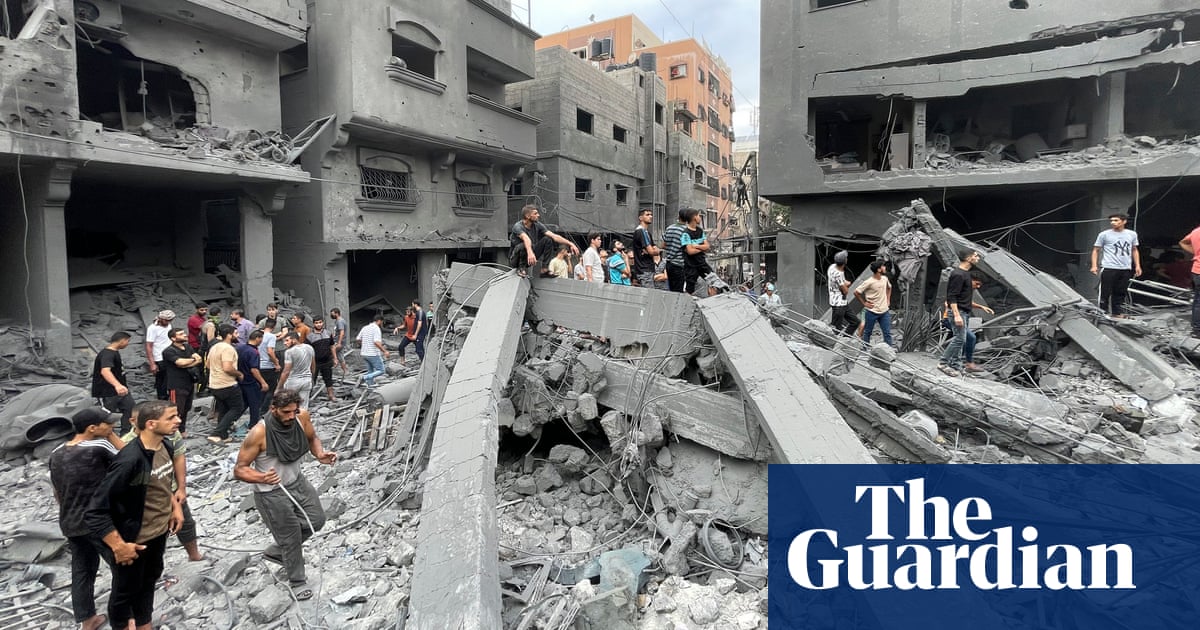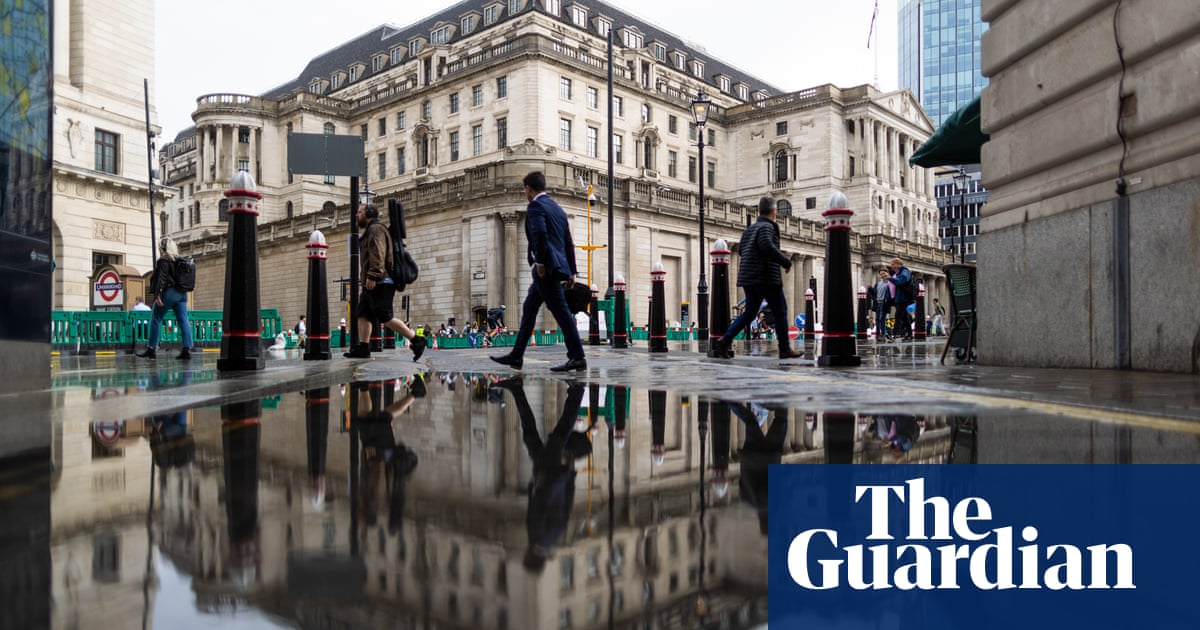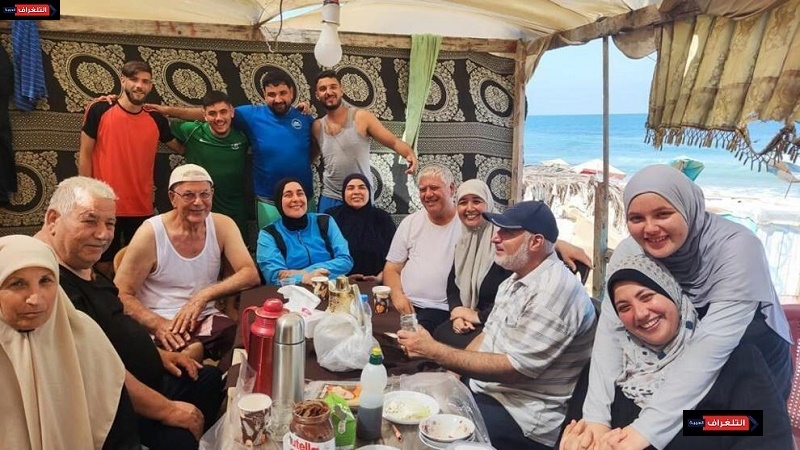
In late August, Nasser Hamid Said made an emergency trip from London to Gaza with his wife and two children after the death of his sister. For the past 20 days the family have been caught up in an altogether different nightmare: sheltering with relatives amid nonstop Israeli airstrikes and growing fears of an invasion.
“I’m fearful for my children,” he said over the sound of airstrikes in the city of Jabalia. “We need from our government just help to get out. What are they waiting for? I don’t understand.”
The family are among the 200 British or dual nationals in the Palestinian territory who have made their presence known to the UK government. On Thursday, Rishi Sunak said a team of Border Force officials had been sent to Egypt in the hope that a pause in fighting would allow people to leave.
Since Israel issued sweeping evacuation orders for people in northern Gaza, the family have twice driven south to the Rafah border crossing where they waited among thousands of others unable to cross into Egypt. On Friday, a UK government official called Hamid Said with a message he had heard many times: we’re trying.
“What are you trying? This is an emergency,” said Hamid Said, 52. “We don’t understand why the government didn’t help us to get out.”
On Thursday, Sunak’s official spokesperson said: “We obviously want to ensure that those British nationals that do want to leave can get out of Gaza. That’s something that we’ve been working on intensely over the past few days.”
At night, Hamid Said sleeps with his family beneath a staircase in the hope it will stay standing if the house is bombed. Food is so scarce he fears that a week from now people will be dying from hunger. But what Hamid Said fears most is an Israeli ground raid into the Gaza Strip that could block road access to the Rafah crossing.
Israel’s military has been bombing Gaza for nearly three weeks, killing more than 7,000 Palestinians, according to the Hamas-run Gaza health ministry. Nearly 1.4 million of Gaza’s 2.3 million residents have been internally displaced and face a humanitarian crisis as the power is off, clean water is scarce and hospitals cease to function without fuel.
Since the conflict erupted on 7 October, at least 12 British nationals have been killed by Hamas and five are thought to be among the hostages held by Hamas, according to the British government. In the UK, nearly a quarter of Labour MPs and more than 250 lawyers have called for a humanitarian ceasefire to prevent further unnecessary deaths and to meet obligations under the Geneva conventions.
“The situation in Sudan with the war, or with other places, straight away they send a ship or something to take them out. But for us, I don’t understand why it’s been 20 days that they’ve left us here,” said Hamid Said.
“They [Israel and Palestine] must find a way to understand each other, to finish this war,” he said. “I came here just to visit, I came here just to see my family. It has nothing to do with me, I want to go back with my children.”
On 12 October, the government announced repatriation flights for British and dual nationals and dependants from Israel, but for those in Gaza there is no such arrangement yet.
In late September, Faras Abuwada travelled to Gaza with his wife and five children. He returned to London a week later for work while his family stayed in Jabalia, where they have been stuck since.
“I’m feeling guilty for putting them in this situation and I can’t do anything for them,” said Abuwada, 47.
Taking matters into his own hands, Abuwada flew to Cairo on 15 October in the hope of meeting his family at the border. He came prepared with painkillers for his three-year-old son’s anaemia that is worsening each day, and antibiotics for his eight-year-old daughter’s ear infection.
But he only got as far as Arish before Egyptian authorities stopped him from going any further. His family travelled to Deir al-Balah before returning north for safety.
The conflict has taken its toll on Abuwada, who is back home again in London. For nearly three weeks he has been unable to sleep and has taken sick leave from his work as a full-time legal consultant. He feels hopeless and calls government officials every day. On Friday he received a call from a government official with no further update.
“The government has cheated us as British people in Gaza,” said Abuwada, who woke to news on Friday that a relative’s house, 100 yards from his family’s, had been struck, killing 10 people.
“They’re not doing anything,” he said. “They’re just watching and waiting for their people to get killed.”











